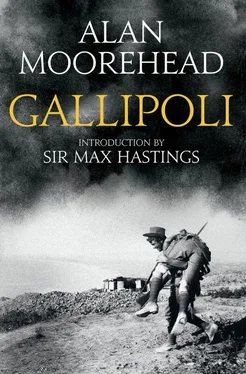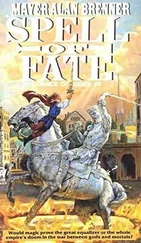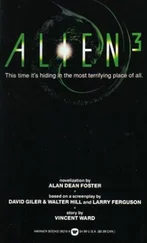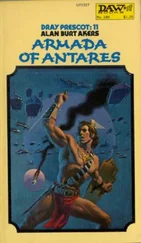Waking next morning, stiff and uncomfortable on the ground, the young soldier found himself looking out on a scene which was probably much less dramatic than he had imagined, at any rate as far as the general prospect was concerned. He was in the midst of a vast dishevelled dumping ground, a slum of piled-up boxes and crates, of discoloured tents and dusty carts, of the debris of broken boats and vehicles that seemed to have been cast up like wreckage by some violent storm in the night. There was a stony football field; a few squalid huts were standing by the shore, and the legendary River Clyde was an old hulk in the bay. Smoke drifted up from cooking fires as from the back streets of an industrial town. Not a green thing grew, and although all kinds of soldiers were moving about from their holes in the ground and among the tents, they imparted somehow that air of fatigue, of staleness and physical boredom, which overtakes the homeward-going crowd in a great city railway station at the end of a long Sunday in the summer. Of Troy and the Hellespont, of the raging Turks and the crashing artillery, of death itself, there was usually nothing to be seen.
But then, as the recruit waited to be told what to do, like a boy in the quadrangle on his first morning at school, the others ignoring him as they went by on their own mysterious and definite occupations, the morning shelling would begin, the long scream, the shuddering crump in the ground, and at once he would discover a sense of identity; his nerves touched the hidden current by which, under an air of matter-of-factness, they were all animated and controlled, and there was a sort of reassurance in this experience. When at last he got his orders to go to this or that sector in the line, when he found himself actually on the road and marching, as it were, towards a precipice, his fear was often swallowed up in a delirious fatalism, a sort of bated recklessness. Now finally he was committed, from this moment his past life had gone, and he ran blindly forward or galloped his horse when he was told to hurry across the exposed ground. Obediently he dived down in the wake of his guide into the gullies and the underground city on the plain, acutely aware of the strange sights about him but in reality seeing nothing but himself. And again at the front, a mile or two away from the coast, anticlimax intervened. For long periods it was very quiet in the trenches, but there was an uninhibited air, almost a sense of freedom, which was much less constricting than the atmosphere of the headquarters and the base depots on the beach. Men strolled about in the sunshine, apparently in full view of the Turks. They were incurious but friendly. ‘Ah yes, we’ve been expecting you. Don’t know where you’re going to sleep. Perhaps over there.’ Over there might be a neolithic hut of stones, a blanket stretched across a hole in the side of a trench, some blind alley where a group of men were playing cards. They did not move or look up when a machine-gun snapped out somewhere in the open field ahead, a field like any other field but dry and characterless in the flat sunlight.
Then days would elapse while the new soldier, emerging from his private foreboding, still marvelled at things which had long since ceased to be remarkable to the other men: the way, for instance, a French soldier would perch on the cliffs and sound a hunting horn as a warning to the soldiers bathing in the sea below that a shell was coming over from Asia. Or it would be some surprising act of military punctilio, a pipe band parading on the shore, an immaculate colonel, looking like some animated tin soldier from the nursery, raising his hand to salute the flag at sunset. It was the casual thing done in these bizarre surroundings which was so unexpected, the very fact that they could play football at all, that the men could abandon themselves to the simplest pastimes, that they could sit, as some of them did, for hours on end oblivious of the world, happily shooting with a catapult at sparrows coming across from the Turkish lines. And always to the fresh eye there were recurring moments of release and wonder at the slanting luminous light in the early mornings and the evenings, in the marvellous colour of the sea.
But in the end, inevitably, these things ceased to be remarkable any more, they became part of an accepted background, and soon the new soldier would be filling his diary with jottings about food, about the latest parcel from home, about the hour at which he went to sleep on the previous night, about food again.
It was many months now since any of the older soldiers had seen a woman, and although the usual kind of story went around — the Turks had women in their trenches, B Company had quite definitely heard them squealing last night — sex was not a subject that generally obsessed them. It was very secondary to food. In a book called Letters from Helles , which a Colonel Darlington published long after the war, there is recorded an incident which reveals a not too painful detachment, almost a Robinson Crusoe submission to the inevitable, which was probably the general thing.
An orderly announced in an awed voice one day, ‘There’s women in that boat, Colonel.’ The Colonel ‘went out and sure enough there was a party of Australian nurses being shown around the shore to see how the wild soldier lives and sleeps. I got my glasses to see the unusual sight and much to all our Tommies’ annoyance a young nut of a staff officer with much ostentation put his arm round one of the nurses’ waists, struck an attitude and waved his hand to us. We all shook our fists at him, which caused great amusement on the launch.’
Up to the end of November there was very little talk of evacuation. It was discussed in the trenches like any other possibility, but in a detached way, and few of the men really believed that it could happen. The physical presence of the Army, its air of permanence, was all around them; too much had been committed here, too many were dead, to make it possible for them to go away. And in any case there was at this stage no plan for withdrawing from Helles at all.
At the beginning of December, however, the men at Anzac and Suvla began to notice that something unusual was going on. Soldiers who reported sick with some minor ailment were not treated at the hospitals on the bridgehead but were at once sent off to the islands and were seen no more. In increasing numbers companies and battalions were taken off en bloc , and those who remained behind did not altogether believe the official explanation that this was part of the new ‘winter policy of thinning out the bridgehead’. They thought for the most part that a new landing was to be made.
The problem was one of frightful complexity. There were some 83,000 men in the Suvla-Anzac bridgehead, and to these were added 5,000 animals, 2,000 vehicles, nearly 200 guns and vast quantities of stores. It was quite impractical to think of getting the whole of this army off in a single night, since there was neither room for them on the beaches nor sufficient boats to get them across to the islands. Equally a fighting withdrawal was out of the question: in a moment the enemy guns firing from the hills above would have wrecked all hope of embarkation.
The plan that was finally adopted was very largely the work of Colonel Aspinall, who was now serving as a brigadier-general on Birdwood’s staff, and of Lieut.-Colonel White, an Australian at Anzac. They proposed a gradual and secret withdrawal which was to take place during successive nights until at last only a small garrison was left; and these last, the ‘bravest and the steadiest men’, were then to take their chance on getting away before the Turks discovered what was happening. This meant that the operation would rise to an acute point of tension during the last hours — a rough sea would ruin all, a Turkish attack would expose them to a slaughter — but still there seemed no other way.
Читать дальше












